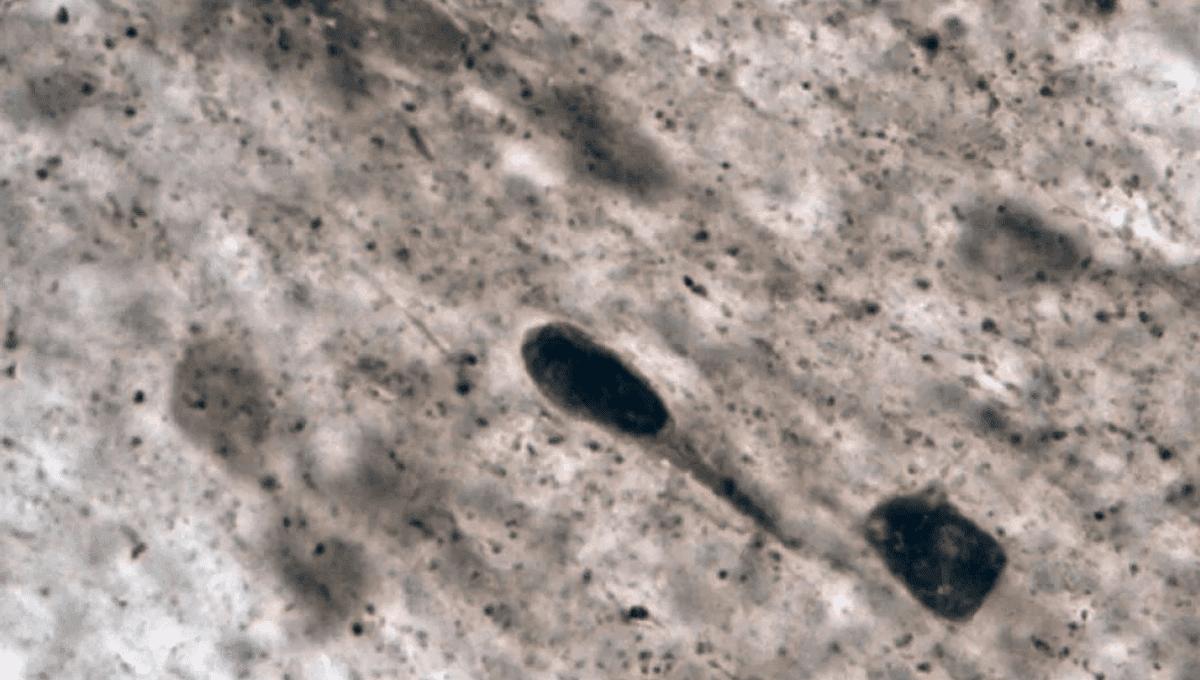
Infection with certain bacteria from the Desulfovibrio genus triggers the formation of protein aggregates in nematode worms, a new study reveals. The findings bolster previous research showing Desulfovibrio abundance correlates with the severity of Parkinson’s symptoms. Not all Parkinson’s cases can be blamed on the bacteria, but the authors think the majority of people affected by the devastating disease could be infected with harmful Desulfovibrio strains.
Parkinson’s Disease is the second most common neurodegenerative disease, currently affecting over eight million people. As a condition most commonly occurring later in life, it’s expected this number will grow rapidly as the world’s population ages. However, if a new study is right, that may not be inevitable.
When strains of Desulfovibrio bacteria from the digestive systems of people with Parkinson’s Disease were given to Caenorhabditis elegans worms, they produced aggregations of the α-synuclein protein, the new paper reports. This protein is a naturally-occurring protein in nerves that aggregates in the brain and spinal cords of patients with Parkinson’s and some other diseases.
Evidence has been building for a long time for a link between Parkinson’s Disease and gut bacteria. Not only is constipation a warning symptom of the disease, but the transfer of bacterial samples from Parkinson’s patients produces similar symptoms in mice, which are then cured with antibiotics.
However, identifying the bacteria responsible has proven harder. Comparisons of the mix of bacteria in the digestive systems of Parkinson’s Disease patients and healthy counterparts showed differences, but no clear evidence of a culprit.
The authors of the study consider Desulfovibrio the prime suspect, but if it was as simple as all Desulfovibrio causing the disease, it’s likely the case would have been solved long ago. Instead, while Parkinson’s patients have a higher abundance of Desulfovibrionaceae, the genus was also present in 80 percent of healthy controls.
The team collected fecal samples from ten Parkinson’s patients and their healthy spouses, cultivating the bacteria before separating the Desulfovibrio from other gut inhabitants. The Desulfovibrio from both patients and controls were fed to C. elegans, the model species that was the first multicellular organism to have its genome sequenced. A different form of control was established by feeding E. coli to other C. elegans.
The worms fed the Desulfovibrio all produced large quantities of α-synuclein aggregates and many died early. Meanwhile, the α-synuclein aggregates from worms fed with the Desulfovibrio from spouses without the disease were not significantly different from the worms fed on E. coli.
Perhaps the most remarkable aspect was that the Desulfovibrio from the spouses was mostly from the same species most commonly found in the patients, D. fairfieldensis. In other words, there may be both dangerous and safe strains of the main Desulfovibrio species, particularly D. fairfieldensis,
How the bacteria induce protein aggregates remains unknown, but the authors think it may be connected to the way Desulfovibrio produces hydrogen sulfide (rotten egg gas). H2S is known to affect cell mitochondria in ways that can promote the production of reactive oxygen species, which in turn may make α-synuclein aggregate.
Parkinson’s Disease has a well-established hereditary component, but; “Only a small share, or roughly 10 percent, of Parkinson’s disease is caused by individual genes,” study author Professor Per Saris of the University of Helsinki claimed in a statement. Many researchers consider Parkinson’s Disease to not be a single condition but a syndrome.
As if its suspected role in Parkinson’s disease wasn’t enough to make Desulfovibrio unpopular, it is also a cause of irritable bowel syndrome and blood infections.
The study is published in Frontiers in Cellular and Infection Microbiology
Source Link: Common Bacteria Could Be The Main Cause Of Parkinson’s Disease